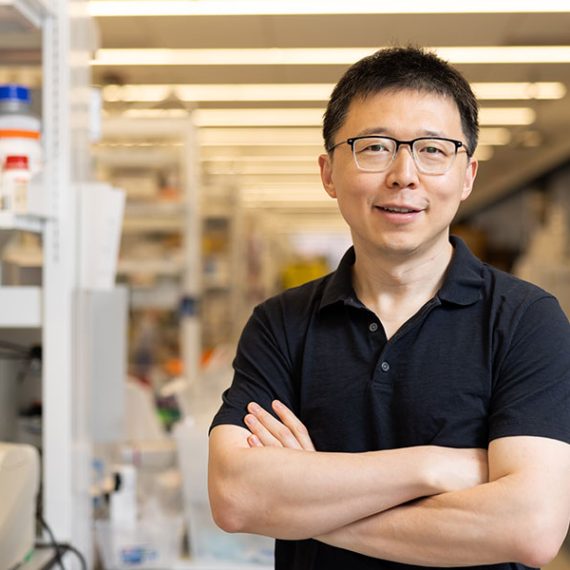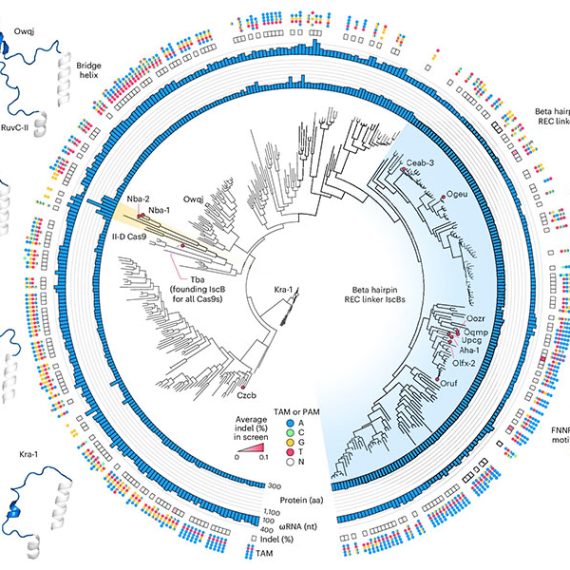Our researchers are at the forefront of applications based on CRISPR, bacterial enzymes that have been adapted to promote human health. We are finding new DNA-editing enzymes with a broader, more precise reach, as well as RNA- and base-editing tools that target disease without heritable genomic changes. We are also developing a diagnostic tool called SHERLOCK that detects trace levels of infectious agents like Zika.

To view this video please enable JavaScript, and consider upgrading to a web browser that supports HTML5 video

Genome Engineering
CRISPR · SHERLOCK · REPAIR · RNA editing · DNA editing · brain disorders · diagnostics · disease models · therapeutics

Featured Researcher
Feng Zhang
Feng Zhang studies physiological processes and develops ways to improve human health.
Researchers
~4 hours
The typical time it CRISPR-Cas9 to edit a target gene in a typical cell.
11 base pairs
The current targeting range of the editing Cpf1 in human coding sequences, one cleavage site per ∼11 bp.
SOURCE: Zhang et al.



